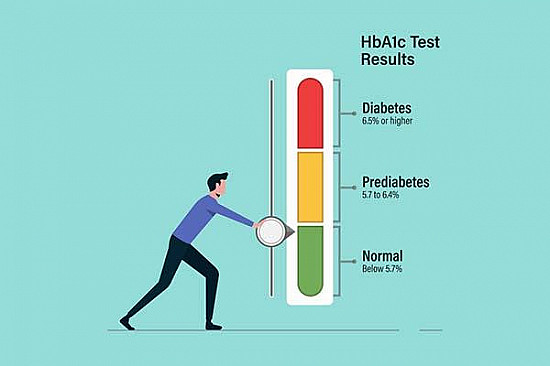Healthy eating for blood sugar control

If you have diabetes, your healthy eating plan should not be that different from a healthy eating plan for someone without diabetes. In fact, the American Diabetes Association (ADA) echoes the dietary guidelines recommended for the general public: A diet centered on fruits, vegetables, whole grains, legumes (peas and beans), and low-fat dairy products.
How carbs fit in
However, you'll want to pay special attention to your carbohydrate intake. For most people with diabetes, carbohydrates should account for about 45% to 55% of the total calories you eat each day.
Make sure you choose your carbohydrates wisely — ideally, from vegetables, whole grains, and fruits.
Try to avoid highly refined carbohydrates such as white bread, pasta, and rice, as well as candy, sugary soft drinks, and sweets. Refined carbohydrates tend to cause sharp spikes in blood sugar, and can boost blood triglyceride levels.
The facts on fiber
Vegetables, fruits, and whole grains not only provide more nutrition per calorie than refined carbohydrates, they also tend to be rich in fiber. Your body digests high-fiber foods more slowly — which means a more moderate rise in blood sugar.
Fiber comes in two forms: insoluble fiber, the kind found in whole grains, and soluble fiber, found in beans, dried peas, oats, and fruits. Soluble fiber in particular appears to lower blood sugar levels by improving insulin sensitivity, which may mean you need less diabetes medicine.
In addition, a number of studies suggest that eating plenty of fiber reduces the chances of developing heart disease — and people with diabetes need to do all they can to lower their risk.
For more smart strategies for controlling your blood sugar, check out Living Well with Diabetes , a Special Health Report from Harvard Medical School.
Image: nitrub/Getty Images
Disclaimer:
As a service to our readers, Harvard Health Publishing provides access to our library of archived content. Please note the date of last review or update on all articles.
No content on this site, regardless of date, should ever be used as a substitute for direct medical advice from your doctor or other qualified clinician.















